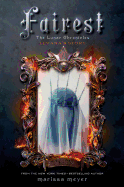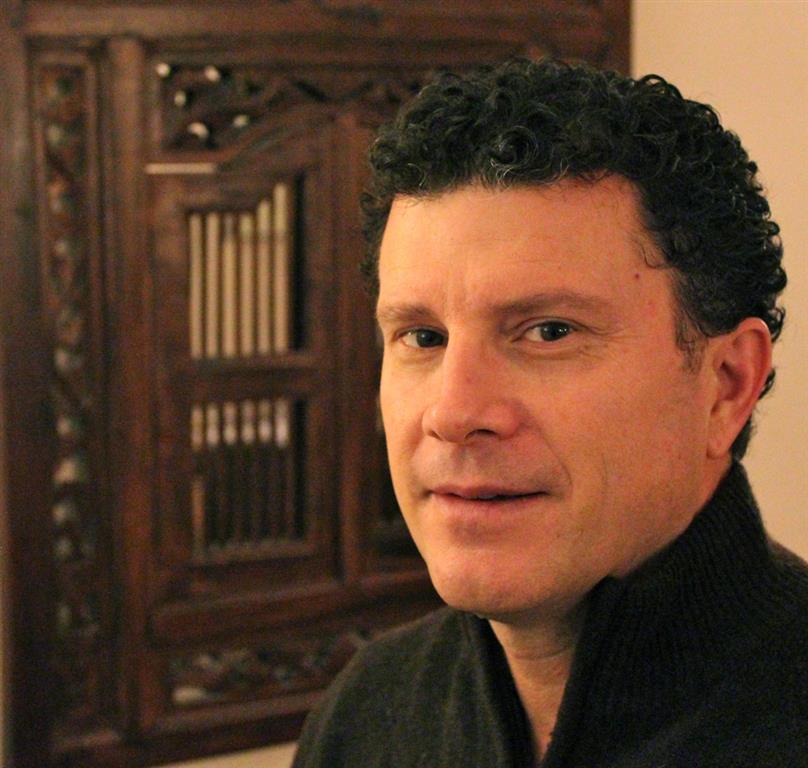 |
| photo: Brian Cox |
Scott Blackwood's We Agreed to Meet Just Here won a Whiting Writers' Award and the AWP Prize for the Novel. His new novel, See How Small (Little, Brown, January 20, 2015), chronicles the lives of those left behind after an inexplicable tragedy--the brutal murder of three teenage girls in an ice cream shop. A longtime resident of Austin, Tex., Blackwood now lives in Chicago, Ill.
On your nightstand now:
Rereading Truman Capote's In Cold Blood, Tim O'Brien's Going After Cacciato, Laird Hunt's Neverhome and George Saunders's Tenth of December.
Favorite book when you were a child:
Claire Huchet Bishop's The Five Chinese Brothers and Daniel Defoe's Robinson Crusoe. Odd pair, but they both deal with being lost at sea--Crusoe on the island and the greedy kid in Seven Chinese Brothers who wouldn't come back despite being warned and finally the brother holding the sea in his mouth had to let it go and so the kid was washed out to sea and drowned. I think I loved the idea of being lost at sea but was scared of it, too. Also, I get seasick easily.
Your top five authors:
William Faulkner, Gabriel García Márquez, Alice Munro, Toni Morrison, Anton Chekhov. Old school: truth, beauty and vision.
A writer--living or dead--for whom you'd take a bullet:
Two writers. The recently dead Márquez: the image of him smoking furiously behind the wheel while driving his family to Acapulco for vacation and suddenly knowing he has One Hundred Years of Solitude figured out is one I love. Luckily the car didn't go off the road. The long-ago dead Chekhov: a lovely man, physician and consummate artist, the father of the modern short story. I'd take a bullet and he'd remove it with a steady, calming hand.
Book you've faked reading:
David Foster Wallace's Infinite Jest.
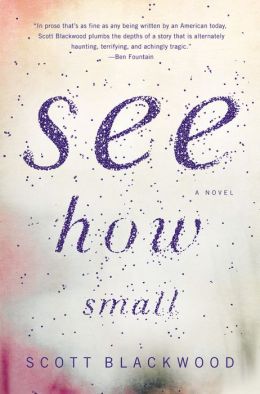 Book you're an evangelist for:
Book you're an evangelist for:
Denis Johnson's Angels.
Book you've bought for the cover:
2666, the cover of which is strange and lovely. At the time, I'd never read anything from Roberto Bolaño, and I was just blown away by it.
Book that changed your life:
Raymond Carver's early short-story collection Would You Please Be Quiet, Please? because it taught me so much about writing and how it could knot your stomach and set you free all at once.
Favorite line from a book:
About a mother's grief: "A trickle of blood came out under the door, crossed the living room, went out into the street, continued on in a straight line across the uneven terraces, went down steps and climbed over curbs, passed along the Street of the Turks, turned a corner to the right and another to the left, made a right angle at the Buendía house, went in under the closed door, crossed through the parlor, hugging the walls so as not to stain the rugs, went on to the other living room, made a wide curve to avoid the dining-room table, went along the porch with the begonias, and passed without being seen under Amaranta's chair as she gave an arithmetic lesson to Aureliano José, and went through the pantry and came out in the kitchen, where Úrsula was getting ready to crack thirty-six eggs to make bread.
" 'Holy Mother of God!' Úrsula shouted." --Gabriel García Márquez, One Hundred Years of Solitude
Which character you most relate to:
Úrsula in One Hundred Years of Solitude because she's the source of everything that ultimately matters: sanity, endurance and compassion.
Book you most want to read again for the first time:
Marilynne Robinson's novel Housekeeping for the sentences and dreamlike atmosphere.
Favorite bit of advice for readers or aspiring writers:
Keep in mind that the best writers are trying to do something entirely new, to invent a new way of saying something, and it may even look strange on the page. It's saying so much that it has to ask you--politely--to read it again, with more patient eyes.
This isn't to push books that just don't do anything for you, books in which nothing "happens," [rather] to say that sometimes--as in music or painting or with people--a book's charms can only affect you if you slow down, take them on their own terms.
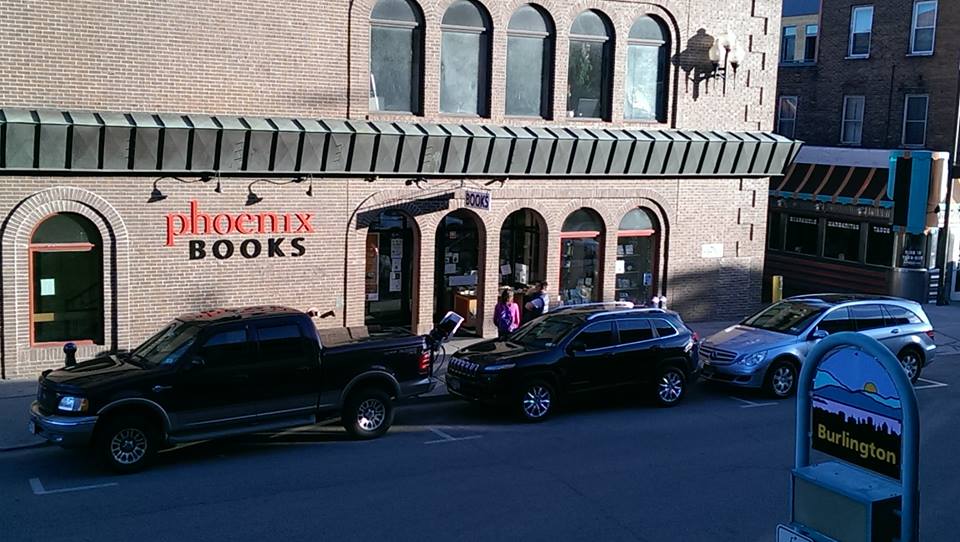 Michael DeSanto and Renee Reiner, co-owners of Phoenix Books, which has stores in Essex Junction and Burlington, Vt., are looking to open a third location in downtown Rutland, the Eagle reported. "We need to settle on a location and raise capital, but I don't see anything that would prevent us from becoming part of the renaissance of downtown Rutland," said DeSanto. "Our hope is to be open in Rutland by early summer."
Michael DeSanto and Renee Reiner, co-owners of Phoenix Books, which has stores in Essex Junction and Burlington, Vt., are looking to open a third location in downtown Rutland, the Eagle reported. "We need to settle on a location and raise capital, but I don't see anything that would prevent us from becoming part of the renaissance of downtown Rutland," said DeSanto. "Our hope is to be open in Rutland by early summer." 




IPC.0204.S3.INDIEPRESSMONTHCONTEST.gif)




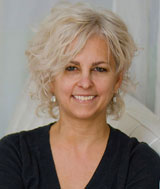



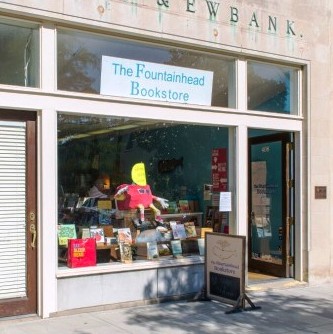 Valerie Welbourn, owner of the
Valerie Welbourn, owner of the IPC.0211.T4.INDIEPRESSMONTH.gif)

 "I'm very excited; I love my new space," said Kempf. "I think I'll be able to serve the community more effectively and efficiently."
"I'm very excited; I love my new space," said Kempf. "I think I'll be able to serve the community more effectively and efficiently."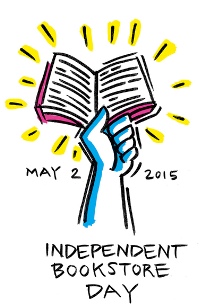 The
The 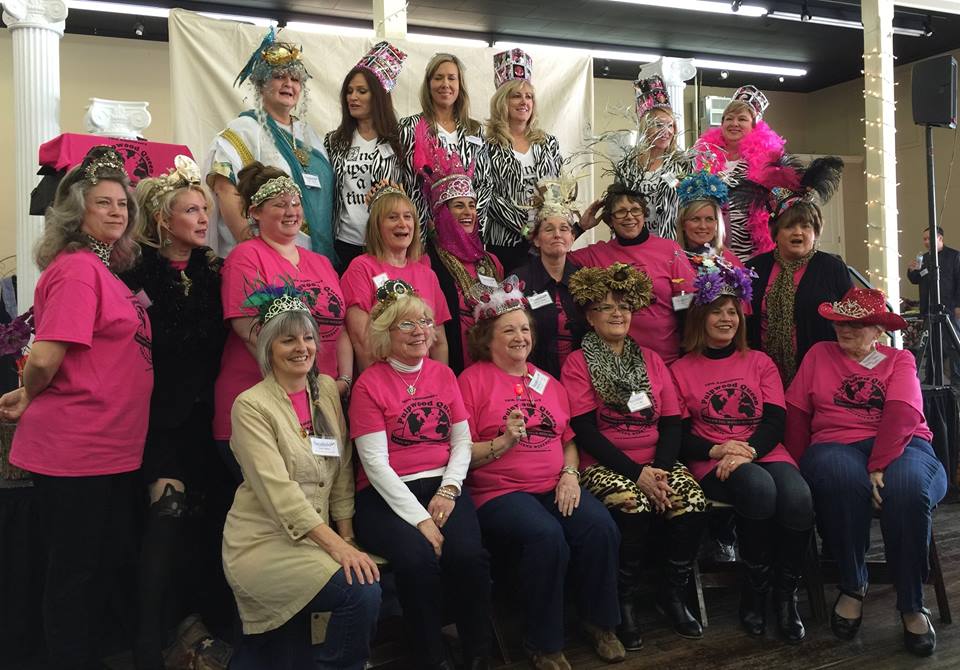 Last weekend, members of Pulpwood Queens Book Club chapters nationwide and more than 40 authors gathered in Nacogdoches, Tex., for the 15th annual
Last weekend, members of Pulpwood Queens Book Club chapters nationwide and more than 40 authors gathered in Nacogdoches, Tex., for the 15th annual 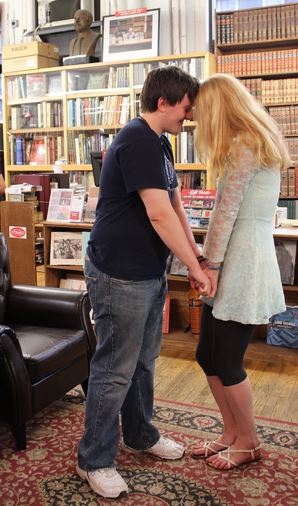 "Any proposal had to involve books, and books in New York entail
"Any proposal had to involve books, and books in New York entail 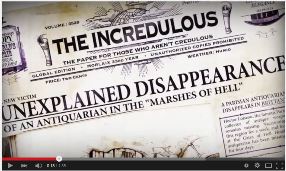 In Search of Lost Dragons
In Search of Lost Dragons
 Book you're an evangelist for:
Book you're an evangelist for: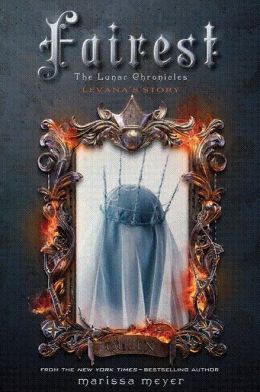 This addition to Marissa Meyer's outstanding Lunar Chronicles stands alone, as the author relates the background of the villainous Queen Levana, ruler of Luna.
This addition to Marissa Meyer's outstanding Lunar Chronicles stands alone, as the author relates the background of the villainous Queen Levana, ruler of Luna.